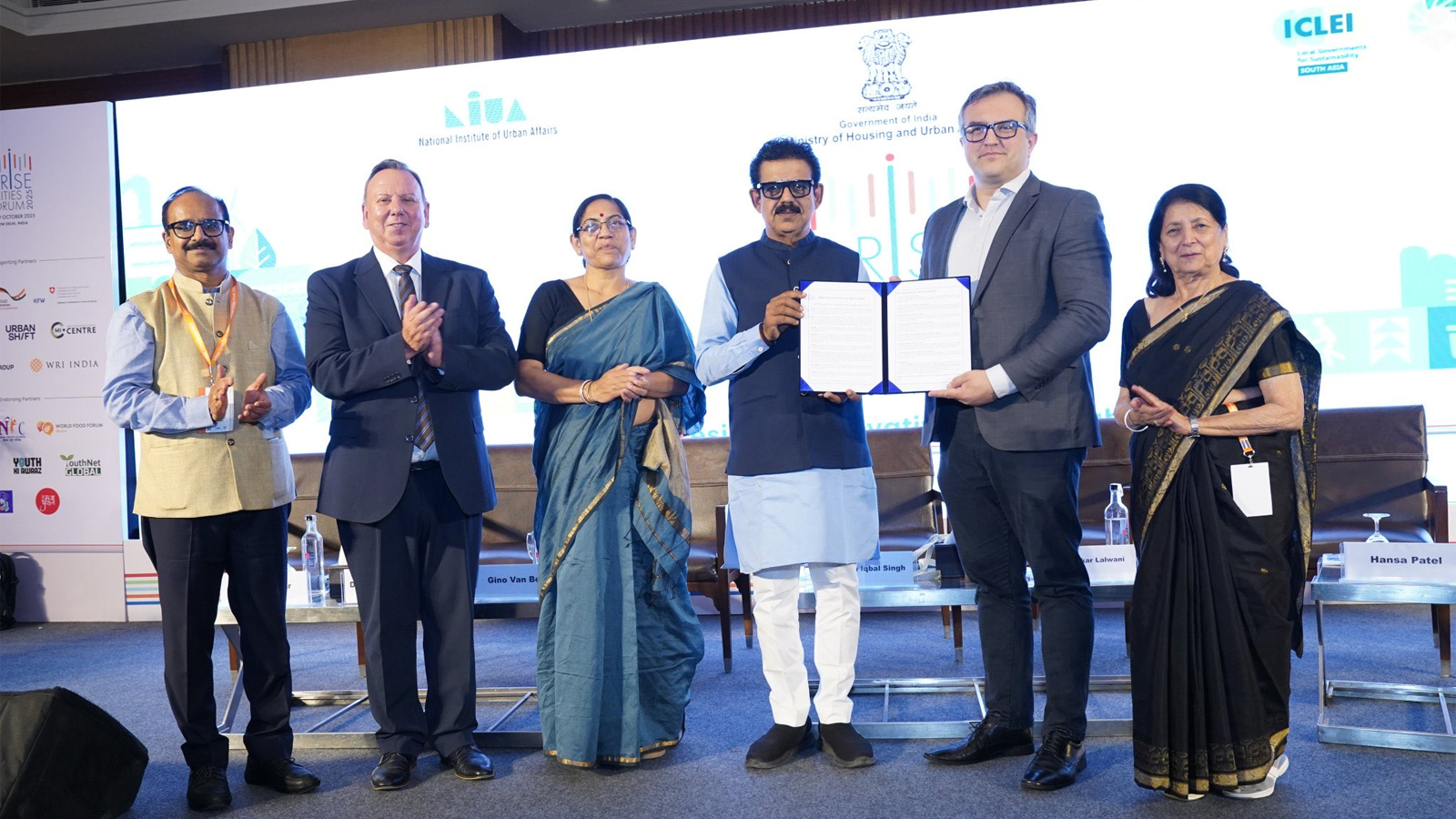The Delhi Declaration on Local Action for Global Climate Goals emerged as the central outcome of the first ARISE Cities Forum 2025, setting the tone for urban climate leadership at the upcoming COP30. Adopted in New Delhi on October 9, the declaration brings together cities and local governments from across the Global South in a unified call for stronger multilevel cooperation and accelerated climate action.
The Forum, co-hosted by ICLEI South Asia and National Institute of Urban Affairs (NIUA), saw participation from more than 200 delegates representing 60 cities and 25 countries. Leaders from local, subnational, and national governments, the private sector, and international organisations pledged to ensure that urban resilience, equity, and sustainability are central to global climate outcomes.
The Delhi Declaration will be formally handed over to the COP30 Presidency in Belém, underscoring the leadership of cities in driving climate ambition. Shankar Lalwani, Member of Parliament and Mentor, Climate Parliament India, handed the document to Rodrigo De Souza Corradi, Deputy Executive Secretary and Director, ICLEI South America.
The Declaration represents a landmark moment for urban climate governance, amplifying the Global South’s voice within the United Nations Framework Convention on Climate Change (UNFCCC) process. It calls for recognising cities and local governments as key partners in achieving the Paris Agreement goals, through enhanced NDCs 3.0, direct access to climate finance, and systemic inclusion of local priorities in global decision-making.
Key commitments outlined in the Delhi Declaration include advancing local climate action through measurable and resourced multilevel NDCs; driving inclusive urban resilience integrating adaptation, circularity, and nature-based solutions; promoting just and participatory green transitions toward net-zero; empowering citizens, women, youth, and communities in climate governance; strengthening multilevel governance and transparent data systems; mobilising climate finance and expanding direct access for cities; and championing Global South leadership through South–South and triangular cooperation.
The two-day forum featured sessions on bridging gaps between national ambition and local delivery, circularity in water and waste systems, urban food systems, nature-based climate solutions, and responses to urban heat. Other key themes included innovative climate governance, disaster management, clean mobility transitions, digital solutions for sustainable energy planning, and transit-oriented development.
Addressing the inaugural session, Tokhan Sahu, Minister of State, Ministry of Housing and Urban Affairs, said, “Cities are important as they are centres of economic development, but they are under pressure from rising population and pollution. Where there are challenges, there are also solutions. ARISE is important because here, solutions can be found despite the challenges.”
Emani Kumar, Deputy Secretary General of ICLEI, said, “ARISE is about collective ownership of a resilient future. It is a collective effort to carry Bharat to Belém – ideas to innovation.”
Amit Prothi, Director General of Coalition for Disaster Resilient Infrastructure, highlighted the scale of urbanisation underway, calling for reimagined infrastructure and risk governance.
Debolina Kundu, Director of NIUA, noted, “The Delhi Declaration is a strong testament that while cities face climate challenges, strong collaboration can lead to transformative change. Let’s carry the spirit of ARISE into our cities, ensuring that climate solutions are practical, adaptive, and inclusive.”














